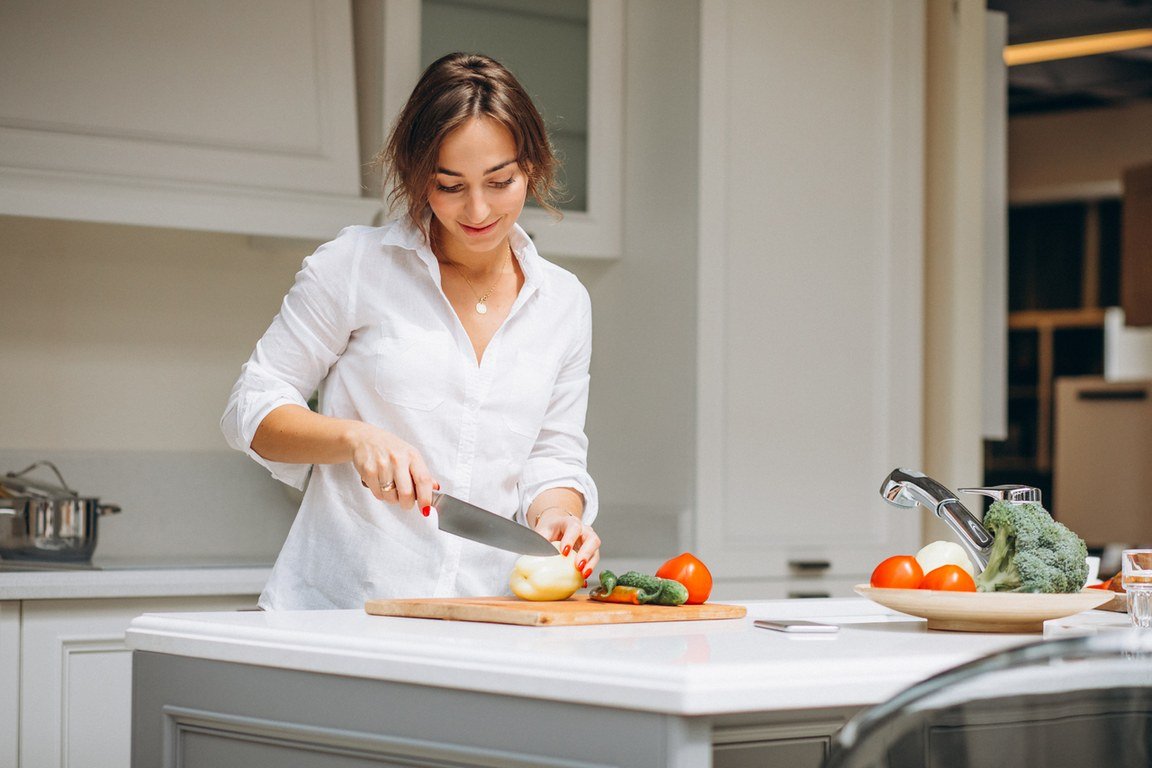Table of Contents Show
Are you a beginner? OR
Do you want to know if you are still a beginner even after so many years of cooking?
Yes, it is possible with the mistakes you make that you are not willing to learn from or improve.
For sure, cooking is fun and all but like every field of life, it also owns a set of rules to swear by which work as a scale of improvement too.
With every level up to professionalism, people will like your food a little more.
After all, who does not want to receive the appreciation that comes along with great food?

Top 7 Mistakes Amateur Cooks are Making
1. Preheat Your Oven Up to the Mark
So for every recipe that asks you to preheat your oven to a certain temperature, always give your oven some extra minutes even after the device beeps the instruction of being ready.
There is a wise science behind this. If you check the temperature of your oven using a temperature thermostat, it will tell you that your oven is some degrees lesser than the desired temperature but the oven will show the exact desired temperature.
You will put in the dish to let it cook but it will not be up to the mark or what we say, slightly uncooked. So to avoid this situation, allow your oven to preheat a little more every time, maybe 5 minutes more, before you decide to throw in the dish.
2. Learn the Art of Mise En Place
Now according to French, mise en place means putting in place. Using this term in your kitchen means putting all the ingredients in one place before you begin cooking.
This is the common example that differs the status of professionals and amateurs. Moreover, this will also be the first step to test your level of creativity in the kitchen.
All you have to do is to gather all the ingredients in required quantities, in sequence, on the counter near your stove.
This will eventually save you from running around in search of this and that. You will have enough time to attend to your recipe for stirring with great care.
Read Also:
3. Sharp Knife Over a Blunt Knife
Do you know a blunt knife is far more dangerous than a sharp knife?
Well, another test to estimate your precision in the kitchen is by judging the sharpness of the knife you use for cutting.
A sharp knife will not only quicken up the total process of cutting but will also save your hands from getting painful cuts as the result of less pressure added.
To be mindful of sharpening all your knives, you can schedule a specific day in the week and add this to your to-do list one day before.
4. Warm the Oil Properly
One major cooking blunder expected from amateurs at large is adding ingredients in the pan in cold oil, resulting in spoiled cuisine.
So after you place the pan or pot on the stove and spread the oil on its surface, let it have a few minutes of its own to catch enough warmth to adjust on the exterior.
This way, when you will add in your vegetables, meat, or egg, it will not stick to the surface but will cook beautifully on the smoothened surface.
The warm pan will attract the moisture of the ingredients and the ingredients will then turn in a bright color followed by brown patches, which we name fried.
5. Season Your Special Cookware from Time to Time
If you own the expensive All-Clad and precious Cast iron pans, you must master the skill of seasoning them appropriately quite frequently to strengthen their performance.
According to Kitcheniest, seasoning the cast iron and all-clad plans is like adding life to the cookware. It takes a complete process of a few steps in apple pie order to attain a perfectly seasoned pan, big-time ready to be used.
And if you skip its seasoning, you are going to lose it pretty soon.
6. Balance the Spices Along the Way
I easily get annoyed over a bunch of home cooks who check and adjust the need for spices in the food at the very end. They have the audacity of determining the required taste when they have finished cooking and are ready to dish out.
Do you think the food will absorb those spices well enough now?
This is the last stage one can be while being an amateur in cooking.
However, the best strategy is to keep checking the lack or increase of spices along the way, time after time, and make wise additions according to the need and taste.
So that the spices, be it salt, red chili powder, or black pepper, everything absorbs well around the meal to build the final flavor.
Tip: Avoid the use of iodized salt.
7. Remember, Hurry Spoils Curry
To whom it may concern, cooking is an elite practice that expects you to be honestly patient throughout the effort to make the effort worth it.
Whereas, what an amateur home cook does on a regular day is keep tossing it around the pan like it’s some game.
Why are you in a hurry? Do you want to spoil the curry?
That’s exactly what it is. To get the delicious taste with the mouthwatering presentation, just wait and watch it cook silently but consistently and move your hands on the spatula only when needed.
Conclusion
So here is the last tip, do not stick hard to the planned recipes you get from acquaintances or the internet. Therefore, make the necessary changes and make use of fresh ingredients to surprise your taste buds and of course the other senses.









